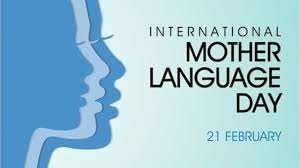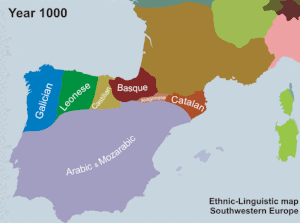
International Mother Language Day
Spain is known throughout the world, in addition to its characteristic culture, for its language: Spanish or Castilian.
The Spanish language has been evolving for centuries to become what it is today, one of the most widely spoken languages in the world. For this reason, it is also a language that exists as a multitude of variants in all the territories in which it is spoken and is even the official language of twenty countries around the world.
In Spain, the official language of the State is Spanish or Castilian, but there is also a great variety of languages that make up the linguistic group of the entire territory. These other languages belong to the region in which they are spoken, are co-official languages and are part of the regional and state cultural heritage. Basque, Galician or Catalan are some of the examples of the great cultural diversity that Spain has. Despite the fact that during the times of the dictatorship many of these now co-official languages were repressed, with the arrival of democracy they had a very important rebirth and cultural flourishing. Today, they are within the legislation, are taught in many schools as a compulsory subject and are highly respected by citizens throughout the country.
Below is the distribution of the regional co-official languages in Spain:
- Aranese, a variety of Occitanco-official in Catalonia. It is spoken in the Pyrenean comarca of the Aran Valley (Val d’Aran), in north-western Catalonia. It is a variety of Gascon, a southwestern dialect of the Occitan language.
- Basque, co-official in the Basque Country and northern Navarre (see Basque-speaking zone). Basque is the only non-Romance language(as well as non-Indo-European) with an official status in mainland Spain.
- Catalan, co-official in Catalonia and in the Balearic Islands. It is recognised but not official in Aragon, in the area of La Franja. Outside of Spain, it is the official language of Andorra; it is also spoken in the Pyrénées-Orientales department in southernmost France, and in the city of Alghero on the island of Sardinia, where it’s co-official with Italian.
- Valencian (variety of Catalan), co-official in the Valencian Community. Not all areas of the Valencian Community, however, are historically Valencian-speaking, particularly the western side. It is also spoken without official recognition in the area of Carche, Murcia.
- Galician, co-official in Galicia and recognised, but not official, in the adjacent western parts of the Principality of Asturias (as Galician-Asturian) and Castile and León.
Additionally there are several endangered but officially recognised languages.
- Aragonese, recognised, but not official, in Aragon.
- Asturian, recognised, but not official, in Asturias.
- Leonese, recognised, but not official, in Castile and León. Spoken in the provinces of León and Zamora.
Wherever you are in Spain the 21st February will be a day to celebrate linguistical diversity
Leave a reply





Leave a reply